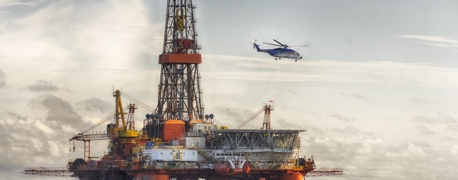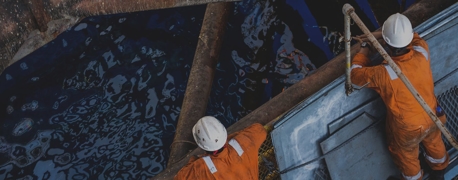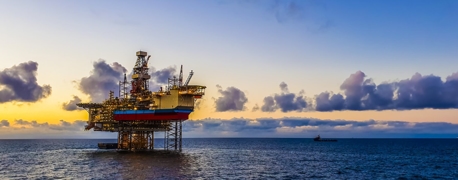What Causes Dredge Accidents?

In August 2020, a dredge owned by Orion Marine Group struck a pipeline in the Corpus Christi Ship Channel, killing five people and injuring five others. While officials worked to determine the cause of the incident, initial reports suggested that the pipeline struck by the dredge was not clearly marked. Later, it was determined that inadequate planning on both sides was to blame for the deadly accident. One thing is clear: dredge accidents such as this should never happen.
Dredges and the crews that operate them are the unsung heroes of the maritime industry. Without them, many of the nation’s most important waterways and channels would be inaccessible for commerce. Working on a dredge is challenging. Crews on these excavating vessels face danger each day on the job caused by machinery, conditions, and more. With the proper safety precautions, dredge accidents don't happen. Without them, preventable and tragic incidents occur.
What Is a Dredger?
A dredger is a vessel that excavates material from the floor of a waterway to make it possible or safer for other ships to navigate. A dredger loosens material, brings it to the surface, hauls it away, and then disposes of it.
To understand how dredging accidents happen, it’s helpful to be familiar with the two types of dredgers that are commonly used. Suction dredgers use a long vacuum-like tube to remove material from the bed of a waterway. Some types of suction dredgers use powerful tools to break up material before it’s removed by the suction tube. Mechanical dredges utilize strength and force to get the job done. Typically, a mechanical dredger uses a grabber or bucket to excavate.
Causes of Dredging Accidents
Machinery Accidents
Crews on dredge vessels face many dangers as they work. Dredging equipment is heavy, powerful, and requires extensive training and specific procedures for safe operation. As they operate, a crane malfunction can cause a dredge’s payload to fall, crushing those beneath it. Since dredging is rough on machinery, companies must make sure they’re maintaining it. A failure to perform proper mechanical maintenance can cause catastrophic failures that lead to preventable injuries or death.
A Lack of Safety Procedures
Every person on the deck of a dredger has a specific task. To make sure they are operating safely, crewmembers need to communicate clearly and work in sync. A momentary lapse in procedure can cause a crane to drop a load too early or trigger another type of preventable accident. Owners of dredging vessels must ensure that crews are adequately trained and that they always follow safety procedures.
Deck Conditions
The deck of a dredge vessel is filled with dangers. First, there are the dangers of machinery, steep drops, ropes, cables, and other parts of the ship that are dangerous to workers. Then, there’s the water and weather that can compound any danger on the ship, making slip and fall accidents common. Vessels owners know of these dangers and are obligated by the law to mitigate them.
One of the most common types of dredge accidents is falling overboard. Besides natural conditions, dredges can suddenly jolt as they excavate dense or tough material.
Collisions
Dredgers face the possibility of collision from dangers below the water as well as from those above it. Dredging vessels work to clear the way for other ships. This makes them particularly vulnerable to running aground or colliding with underwater hazards. Additionally, since dredgers often operate in busy channels, they’re at constant risk of colliding with larger and smaller vessels
Working Around Other Industries
As mentioned above, dredgers make offshore commerce possible. This means that these excavating vessels often work with and near other types of industries. Crews on dredgers face dangers from shipping vessels, offshore oil vessels, and, as seen in Corpus Christi, pipelines used by companies in waterways. Dredgers require the vessels and companies they work near to value safety as much as they do to produce the safest environment possible.
Environmental Factors
Another significant cause of dredging accidents is the environmental conditions in which these vessels operate. These environmental factors can make the dredging process more unpredictable and increase the risk of accidents.
Dangerous environmental factors that dredgers face include:
- Changing Tides: Tidal shifts can suddenly change the water depth, posing a risk to the dredger's stability or causing it to run aground.
- Strong Currents: These can move the dredger from its intended position, potentially leading to collisions or making the vessel hit a submerged object.
- Adverse Weather Conditions: Storms, high winds, and rough seas can pose significant dangers to dredging operations. They can lead to loss of equipment, unstable working conditions, or even capsize the vessel.
It's crucial for dredging operators to have updated knowledge about the environmental conditions of the area they are working in. Using advanced technology like real-time monitoring systems can help anticipate changes and mitigate risks.
Operator Fatigue and Human Error
Dredging operations can be long and strenuous, often requiring crew members to work extended shifts. Prolonged working hours can lead to fatigue, which is a significant factor in human errors.
Some of the risks associated with operator fatigue include:
- Impaired Judgment: Tired operators might not assess risks effectively or may make poor decisions.
- Delayed Reaction Time: Fatigue can slow down a person's ability to react quickly in emergencies, leading to accidents.
- Reduced Coordination: Physical tasks, especially those involving heavy machinery, require precise coordination. Fatigue can hamper this, leading to mishandlings.
To combat this, companies must ensure proper work rotation, regular breaks, and adequate rest periods for their crews. Additionally, emphasizing the importance of communication can help in catching potential errors before they lead to accidents.
Why Are Dredging Accidents So Serious?
Dredging accidents are serious because they are often life-altering and are entirely preventable. Injuries caused by dredge accidents are often serious, painful, and require extensive rehabilitation.
Dredge accident injuries include the following:
- Crush injuries
- Amputation
- Broken bones
- Traumatic brain injuries
- Spinal cord injuries
- Toxic exposure
- Burns
- Drowning
- Disfigurement
These injuries aren’t just serious—they’re completely preventable. Companies are required to protect their workers from accidents and the dangers that cause them. Since dredging is dangerous, vessel owners are required by law to make sure their workers are safe. When they fail to do this, they should be held accountable.
- Categories


